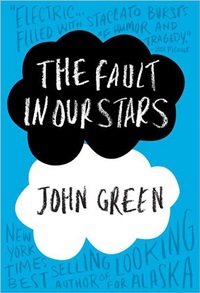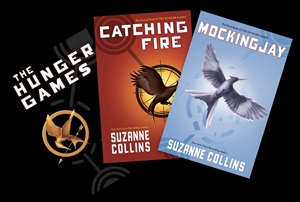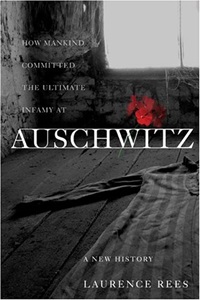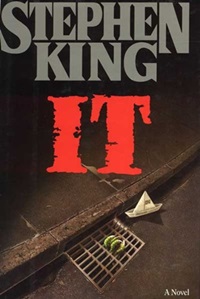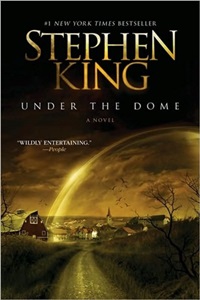Book Review: Markus Zusak – “The Book Thief”
May 21, 2014 Leave a comment
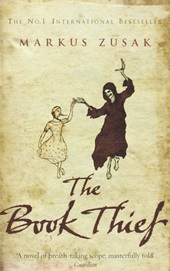
It is 1939. Nazi Germany. The country is holding its breath. Death has never been busier, and will become busier still.
Liesel Meminger is a foster girl living outside of Munich, who scratches out a meager existence for herself by stealing when she encounters something she can’t resist–books. With the help of her accordion-playing foster father, she learns to read and shares her stolen books with her neighbors during bombing raids as well as with the Jewish man hidden in her basement. (Source: amazon.com)
I took quite a while for me to read this book. Since the movie came out in the theatres, I was really interested in reading it, but once I read its description, standing in my local bookstore, I put it down again.
Because it was written by “death”.
Of course I know it’s not really written by “death”, he’s only the narrator, but still, I felt controversal to give it a shot, although the story behind the life of Liesel Meminger – The Third Reich, World War II, the Holocaust – are the three history subjects that I’d never refuse to read about, no matter what. So by pure accident I got hold of a free version of it on my Kindle and decided I had nothing to lose. One thing led to another and I only needed less than two days to finish it (I’m really craving for books recently!).
My conclusion: it was worth it. At first, I had real difficulties to find my own way into the kind of narration that I faced in this book, and halfway through the first 5 pages, I wanted to give up again. But my will to find out if the narration changes, if maybe “death” gives it into the hands of Liesel Meminger, the main character, kept me going. And I’m glad it did.
I love how the reader follows Liesel from scratch; from the moment she can’t even read a single word, to the end, where she writes an entire book about herself. It’s interesting to see her learning new words and expressions every day, just by sitting with her foster-father during every night (that she can’t sleep because nightmares of her dead brother are haunting her), reading with her. It’s like the story holds up some kind of mirror to every reader that follows it, because who can’t remember themselves starting to read in (or in my case, before) school? And who doesn’t look back to it with a shy smile on their faces when they remember their first few tries, sometimes failing miserably, but never giving up? Well, I do remember my first steps, and even if mine never have happened in such a difficult environment as Liesel’s first steps, I can somewhat relate to her. Reading becomes her escape, and the wish to write becomes kind of her lifegoal, the thing that keeps her going. It seems like the narrator (“death”, remember?) draws the reader in, and while Liesel forgets all the horrors of the Nazi-Regime whenever she feels the kick after having stolen a book or reading in the dark basement to Max, the Jew she and her foster-parents have hidden, it almost seems like the reader of “The Book Thief” can himself forget the outside world. A book all about the love to books. Brilliant.
One of the most loveable characters in this book for me was definitely Liesel’s best friend, Rudi Steiner. He is a crazy young boy who’s desperately and (not so) secretly in love with Liesel, and tries to get her to kiss him whenever there is an opportunity (mostly, when he has done something heroic for her or for himself, something he can be admired for). I actually admire him for his attitude, because although he probably knows that Liesel will never kiss him (when you’re 11/12, boys are generally “Ugh” to every girl, I guess, at least in the old days), he never loses his spirit. Plus, he stands by her side through good and bad times, even accompanies her on more than just one “Book Thief” trip. For me, he sums up what a best friend is all about, no matter what. And I think in the dark times of 1939 until 1943, a best friend like him was even more needed than in any peaceful time before or after.
What the book does with Hans Hubermann, Liesel’s foster-father, is simply described as beautiful. He’s an opponent of the Nazi-Regime, but he does his best to keep his family, and – especially, – Liesel safe. With his neverending will to play his accordion to her, to stay up every night to read for and with her, he not only keeps her alive in some way (by making her fall in love with words, reading and at last, writing, with the latter one literally saving her life), but also lets her being the happy girl she should be. With him being the positive spirit in her life, apart from Rudi, the reader never feels that Liesel ever loses faith in life and all it has to give. Even when “death” creeps into her life more and more and in the end, takes everything she believes in.
The way Zusak has written the book has – as I said at the beginning of this blog, – first made it weird to find my way into it and its story, no matter how interesting the history behind it is. Now that I have finished, I almost feel like Liesel during her first steps in learning to read: everything seems confusing, words make no sense, and you just can’t get your head around things and words. But as the story goes on, you find your own way right into it, and that is what makes it impossible to put this book away for long. Especially with the hints that “death” throws in every now and then, that spoilers you but also makes you want to go on, to know how these “spoilers” happen and turn out in the end. And I have to admit, while reading, quite a few times I even forgot that the narrator was “death”, because I breathed the story in, and I stopped reading between the lines. Of course, there are a lot of times where “death” mentions his work, what he does and has to do, and how he goes on and on with what he does. But it almost makes him human, it makes you think of him like someone like you and me, and you actually can feel some kind of empathy for him, for the struggle that goes on behind his own mind.
My resumé: Markus Zusak has done a stroke of genius here, with approaching a storyline from a completely different angle than other authors, from the view of a person that isn’t even a person, but, in some way, is a person, after all. I say it again:
Brilliant.





